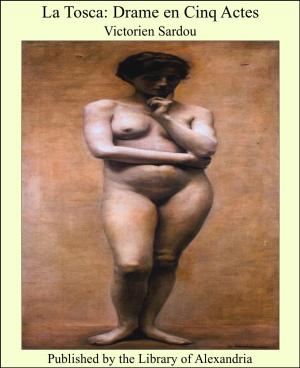M. or N. "Similia Similibus Curantur"
Nonfiction, Religion & Spirituality, New Age, History, Fiction & Literature| Author: | George John Whyte-Melville | ISBN: | 9781465619174 |
| Publisher: | Library of Alexandria | Publication: | March 8, 2015 |
| Imprint: | Language: | English |
| Author: | George John Whyte-Melville |
| ISBN: | 9781465619174 |
| Publisher: | Library of Alexandria |
| Publication: | March 8, 2015 |
| Imprint: | |
| Language: | English |
A wild wet night in the Channel, the white waves leaping, lashing, and tumbling together in that confusion of troubled waters, which nautical men call a "cross-sea." A dreary, dismal night on Calais sands: faint moonshine struggling through a low driving scud, the harbour-lights quenched and blurred in mist. Such a night as bids the trim French sentry hug himself in his watch-coat, calmly cursing the weather, while he hums the chorus of a comic opera, driving his thoughts by force of contrast to the lustrous glow of the wine-shop, the sparkling eyes and gold ear-rings of Mademoiselle Thérèse, who presides over Love and Bacchus therein. Such a night as gives the travellers in the mail-packet some notion of those ups and downs in life which landsmen may bless themselves to ignore, as hints to the Queen's Messenger, seasoned though he be, that ten minutes more of that heaving, pitching, tremulous motion would lay him alongside those poor sick neophytes whom he pities and condemns; reminding him how even he has cause to be thankful when he reflects that, save for an occasional Levanter, the Mediterranean is a mill-pond compared to La Manche. Such a night as makes the hardy fisherman running for Havre or St. Valérie growl his "Babord" and "Tribord" in harsher tones than usual to his mate, because he cannot keep his thoughts off Marie and the little ones ashore; his dark-eyed Marie, praying her heart out to the Virgin on her knees, feeling, as the fierce wind howls and blusters round their hut, that not on her wedding-morning, not on that summer eve when he won her down by the sea, did she love her Pierre so dearly, as now in this dark boisterous weather, that causes her very flesh to creep while she listens to its roar. Nobody who could help it would be abroad on Calais sands. "Pas même un Anglais!" mutters the sentry, ordering his firelock with a ring, and wishing it was time for the Relief. But an Englishman is out nevertheless, wandering aimlessly to and fro on the beach; turning his face to windward against the driving rain; trying to think the wet on his cheek is all from without; vainly hoping to stifle grief, remorse, anxiety, by exposure and active bodily exercise. "How could I stay in that cursed room?" he mutters, striding wildly among the sand-hills. "The very tick of the clock was enough to drive one mad in those long fearful pauses--solemn and silent as death! Can't the fools do anything for her? What is the use of nurses and doctors, and all the humbug of medicine and science? My darling! my darling! It was too cruel to hear you wailing and crying, and to know I could do you no good! What a coward I am to have fled into the wilderness like a murderer! I couldn't have stayed there, I feel I couldn't! I wish I hadn't listened at the door! Only yesterday you seemed so well and in such good spirits, with your dark eyes looking so patiently and fondly into mine! And now, if she should die!--if she should die!"
A wild wet night in the Channel, the white waves leaping, lashing, and tumbling together in that confusion of troubled waters, which nautical men call a "cross-sea." A dreary, dismal night on Calais sands: faint moonshine struggling through a low driving scud, the harbour-lights quenched and blurred in mist. Such a night as bids the trim French sentry hug himself in his watch-coat, calmly cursing the weather, while he hums the chorus of a comic opera, driving his thoughts by force of contrast to the lustrous glow of the wine-shop, the sparkling eyes and gold ear-rings of Mademoiselle Thérèse, who presides over Love and Bacchus therein. Such a night as gives the travellers in the mail-packet some notion of those ups and downs in life which landsmen may bless themselves to ignore, as hints to the Queen's Messenger, seasoned though he be, that ten minutes more of that heaving, pitching, tremulous motion would lay him alongside those poor sick neophytes whom he pities and condemns; reminding him how even he has cause to be thankful when he reflects that, save for an occasional Levanter, the Mediterranean is a mill-pond compared to La Manche. Such a night as makes the hardy fisherman running for Havre or St. Valérie growl his "Babord" and "Tribord" in harsher tones than usual to his mate, because he cannot keep his thoughts off Marie and the little ones ashore; his dark-eyed Marie, praying her heart out to the Virgin on her knees, feeling, as the fierce wind howls and blusters round their hut, that not on her wedding-morning, not on that summer eve when he won her down by the sea, did she love her Pierre so dearly, as now in this dark boisterous weather, that causes her very flesh to creep while she listens to its roar. Nobody who could help it would be abroad on Calais sands. "Pas même un Anglais!" mutters the sentry, ordering his firelock with a ring, and wishing it was time for the Relief. But an Englishman is out nevertheless, wandering aimlessly to and fro on the beach; turning his face to windward against the driving rain; trying to think the wet on his cheek is all from without; vainly hoping to stifle grief, remorse, anxiety, by exposure and active bodily exercise. "How could I stay in that cursed room?" he mutters, striding wildly among the sand-hills. "The very tick of the clock was enough to drive one mad in those long fearful pauses--solemn and silent as death! Can't the fools do anything for her? What is the use of nurses and doctors, and all the humbug of medicine and science? My darling! my darling! It was too cruel to hear you wailing and crying, and to know I could do you no good! What a coward I am to have fled into the wilderness like a murderer! I couldn't have stayed there, I feel I couldn't! I wish I hadn't listened at the door! Only yesterday you seemed so well and in such good spirits, with your dark eyes looking so patiently and fondly into mine! And now, if she should die!--if she should die!"















